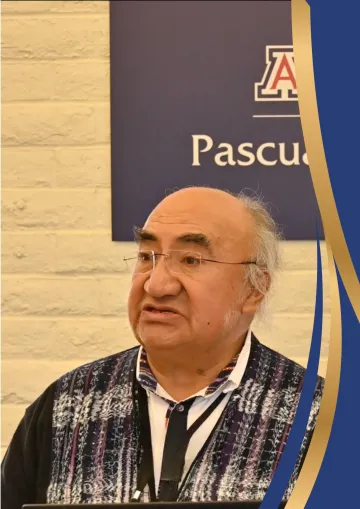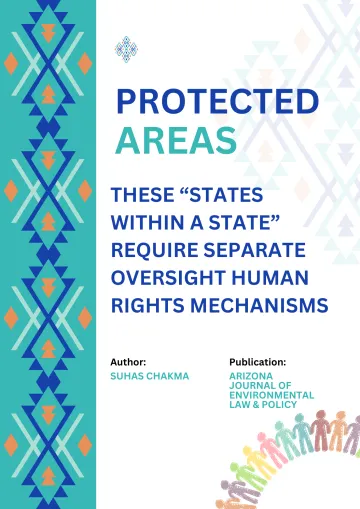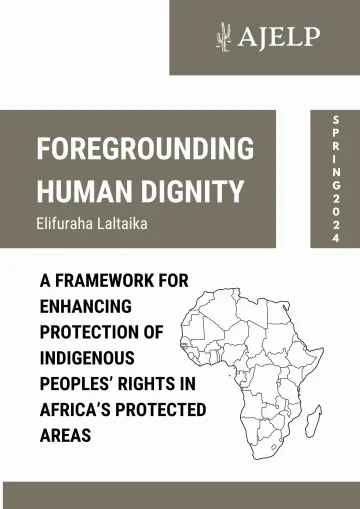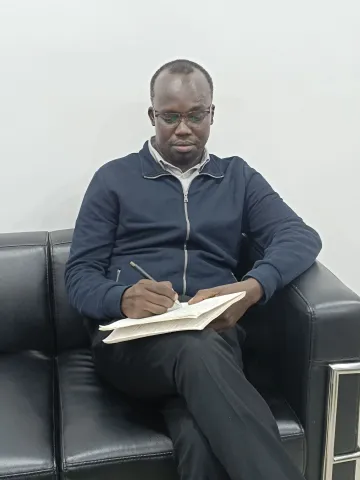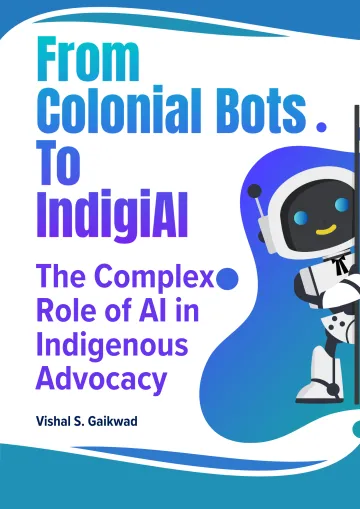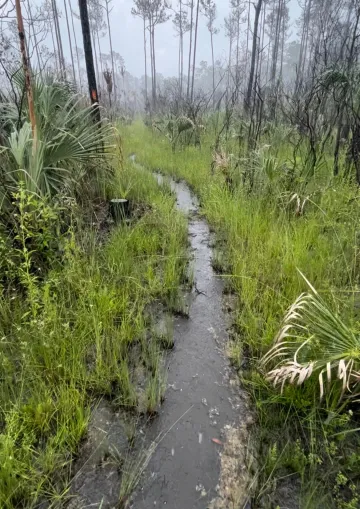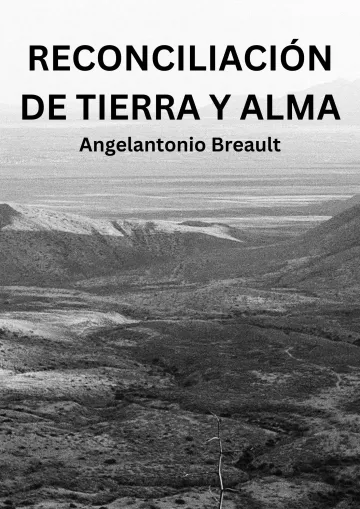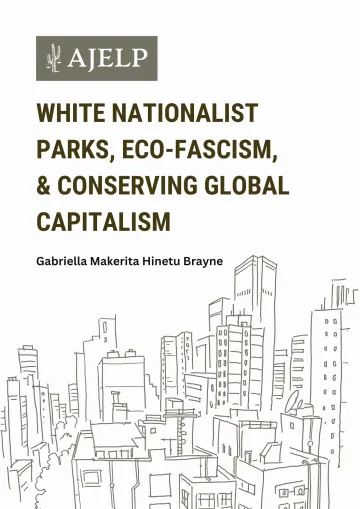SYMPOSIUM
Conservation, Racism and Indigenous Peoples Human Rights
Exploring the intersections of racism, colonialism and conservation and calling for an environmental justice movement based on Indigenous Peoples Human Rights.
To commemorate the United Nations International Day for the Elimination of Racial Discrimination and the International Day of Forests, over 500 participants joined us in Cuk-Ṣon (Tucson Arizona) and online for this two day symposium on Thursday March 21 to Friday March 22 exploring the intersections of racism, colonialism and conservation and calling for an environmental justice movement based on Indigenous Peoples Human Rights. International speakers includes Special Rapporteur on the Rights of Indigenous Peoples José Francisco Calí Tzay and John Knox, the former Independent Expert on human rights obligations relating to the enjoyment of a safe, clean, healthy and sustainable environment.
Watch segmented videos of each speaker on YouTube
Special Issue - 2024 Symposium
The 2023-24 Arizona Journal of Environmental Law and Policy (AJELP) Board is enormously proud to publish the following Special Issue, a retrospective on our symposium on Conservation, Racism and Indigenous Peoples Human Rights in partnership with the Indigenous Rights and Protected Areas Initiative. The Journal has shared a building with the Initiative for years– a few doors down on the second floor of Rountree Hall– but this symposium, held in the Spring of 2024, marks the beginning of our work together. Sometimes, it seems, the gaps in our understanding exist for failing to knock on doors just down the hall.
Working as a Journal, we’ve come to understand that the work of publishing legal scholarship is really the work of selecting the bounds of what’s possible. Our work is political in this sense, and must be constantly conscious of its limitations and assumptions. Our Journal has undertaken a unique approach to environmental legal scholarship, understanding that when we’re talking about the environment we’re talking about everything. We’re talking as much about natural spaces as we are about the people who cultivate and rely on them, as much about the river as its disappearance after years of colonization, its steady return as that imposition is challenged. We can’t separate the interests of conserving natural spaces and resources from the interests of human rights and dignity, from the knowledge and conservation practices of Indigenous Peoples.
This Special Issue begins with a retrospective and call-to-action by the UN Special Rapporteur on the Rights of Indigenous Peoples, José Francisco Calí Tzay. Pieces that follow span the work of the Initiative’s staff and network, whose vital interventions offer an analysis of our current situation and where we can go from here. We’re honored to present this retrospective on the Symposium, and are hopeful this collection will spark new conversations and insights.
Thursday, March 21
Pascua Yaqui Tribe - University of Arizona Microcampus (PYT-UA)
7400 S Settler Ave, Tucson, AZ 85746
Friday, March 22
James E. Rogers College of Law, Ares Auditorium, Room 164
1201 E Speedway Blvd, Tucson, AZ 85721
PROVISIONAL PROGRAMME
| Time (MST) | Event |
|---|---|
| 8:00am-9:00am | Breakfast Buffet |
| 9:00am-9:10am | Traditional blessing |
| 9:10am-9:30am | Welcome, Introduction of Sponsors/Acknowledgements of Support Mia F. Burcham, Arizona Journal of Environmental Law & Policy Editor in Chief, Robert A. Williams, Jr., Indigenous Peoples Law and Policy Program Faculty Chair, Indigenous Peoples Law and Policy Program, Rebecca Adamson, Bay and Paul Foundations), Watch recorded video |
| 9:30am-10:00am | Keynote address by Jose´Francisco Cali Tzay, Watch recorded video Download the Statement United Nations Special Rapporteur on the Right of Indigenous Peoples and former Chair of the Committee on the Elimination of Racial Discrimination (CERD). |
| 10:00am-10:30am | Featured Speaker: Ruben Reyes, District Director, Rep. Raul Grijalva, U.S. House of Representatives, co-sponsor of H.R.7025 - Advancing Human Rights-Centered International Conservation Act of 2022 |
| Morning Session | Fortress Conservation, Racism, Colonialism in Historical and Contemporary Perspective |
| 10:30am–11:00am | Featured Speaker: Robert A. Williams, Jr., Watch recorded video Regents Professor, E. Thomas Sullivan Professor of Law; Faculty Chair, Indigenous Peoples Law and Policy Program |
| 11:00am–11:30am | Featured Speaker: Fiore Longo, Watch recorded video Director Survival International France and Spain (Online) |
| 11:30am-12:00pm | Featured Speaker: Edward Ornstein, Watch recorded video Special Counsel on Environmental Affairs for the Miccosukee Tribe of Indians of Florida (Online) |
| 12:00pm- 12:15pm | Q & A |
| 12:15pm- 1:15pm | LUNCH BREAK |
| Session | Racism, Conservation and Human Rights Violations of Indigenous Peoples in Africa |
| 1:15pm- 2:45pm | Moderator: Elifuraha Isaya Laltaika, Regional Campaign Manager, IPLP Initiative on Indigenous Peoples Affected by Protected Areas and Other Conservation Measures.
|
| 2:45pm-3:00pm | Wrap up-Q & A |
| Afternoon Session | Indigenous Peoples’ Rights, Discrimination and Conservation: Framework and Recent Developments |
| 3:00pm-3:30pm | Featured Speaker: John Knox, Watch recorded video first Independent Expert on human rights obligations relating to the enjoyment of a safe, clean, healthy, and sustainable environment. (Online) |
| 3:30pm-3:45pm | Q & A |
| Session | Racism, Conservation and Human Rights Violations of Indigenous Peoples in Latin America |
| 3:45pm-4:15pm | Featured Speaker: Juan Leon Alvarado, Watch recorded video International Indian Treaty Council Human Rights and Bio-Diversity Consultant. (Online) |
| 4:15pm-4:30pm | Q & A; Closing remarks |
| Time (MST) | Event |
|---|---|
| 8:00am-9:00am | Breakfast Buffet |
| 9:00am-9:15am | Introduction of Sponsors/Acknowledgements of support (AJELP and IPLP) |
| Morning Session: | Racism, Conservation and Human Rights Violations of Indigenous Peoples in Asia |
| 9:15am-10:45am | Moderator: Suhas Chakma, Regional Campaign Manager, IPLP Initiative on Indigenous Peoples Affected by Protected Areas and Other Conservation Measures.
|
| 10:45am-11:00am | Wrap up-Q & A |
| 11:00am-11:20pm | Robert Williams: IPLP Protected Areas and Conservation Initiative |
| 11:20am-11:45am | Vishal Gaikwad: Indigenous Peoples Human Rights Advocacy in the Age of Artificial Intelligence |
| 11:45am-12:00pm | Q & A |
| 12:00pm–1:00pm | LUNCH BREAK |
| Afternoon Session: | Addressing Systemic Racism in Conservation and Protecting Indigenous Peoples’ Human Rights: Decolonizing Conservation and Protecting Biodiversity through a Human Rights-Based Approach. |
| 1:00pm-1:30pm | Featured Speaker: Helen Tugendhat, Watch recorded video Programme Coordinator, Environmental Governance at Forest Peoples Programme |
| 1:30pm-1:40pm | Q & A |
| 1:40pm-2:10pm | Featured Speaker: Chris Chapman Watch recorded video Indigenous Rights Researcher and Adviser at Amnesty International |
| 2.10pm-2:20pm | Q & A |
| 2:20pm-3:00pm | COFFEE BREAK |
| 3:00pm-3:30pm | Featured Speaker: Chrissie Grant, current Chair of the International Indigenous Peoples’ Forum on World Heritage, (Online) Watch recorded video |
| 3:30pm-3:40pm | Q & A |
| 3:40pm-3:50pm | Video Message of Professor Verene A. Shepherd, Current Chair of the Committee on the Elimination of Racial Discrimination (CERD), Watch video message |
| 3:50pm-4:30pm | Closing summaries and acknowledgements |
For questions email law-conservation@arizona.edu
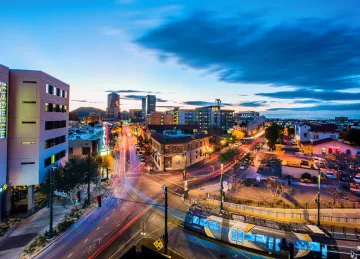
All About Tucson
Food • Environment • Culture
Explore the University of Arizona stunning campus. Take a virtual self-guided tour. Tucson is Arizona’s second-largest city. The University of Arizona – Arizona’s first university and home of the Wildcats – is at the center of it all. Learn more about things to do in Tucson, our famous culinary scene, what the weather’s really like, and about the region’s culture and history. See more of Tucson’s must-sees.



